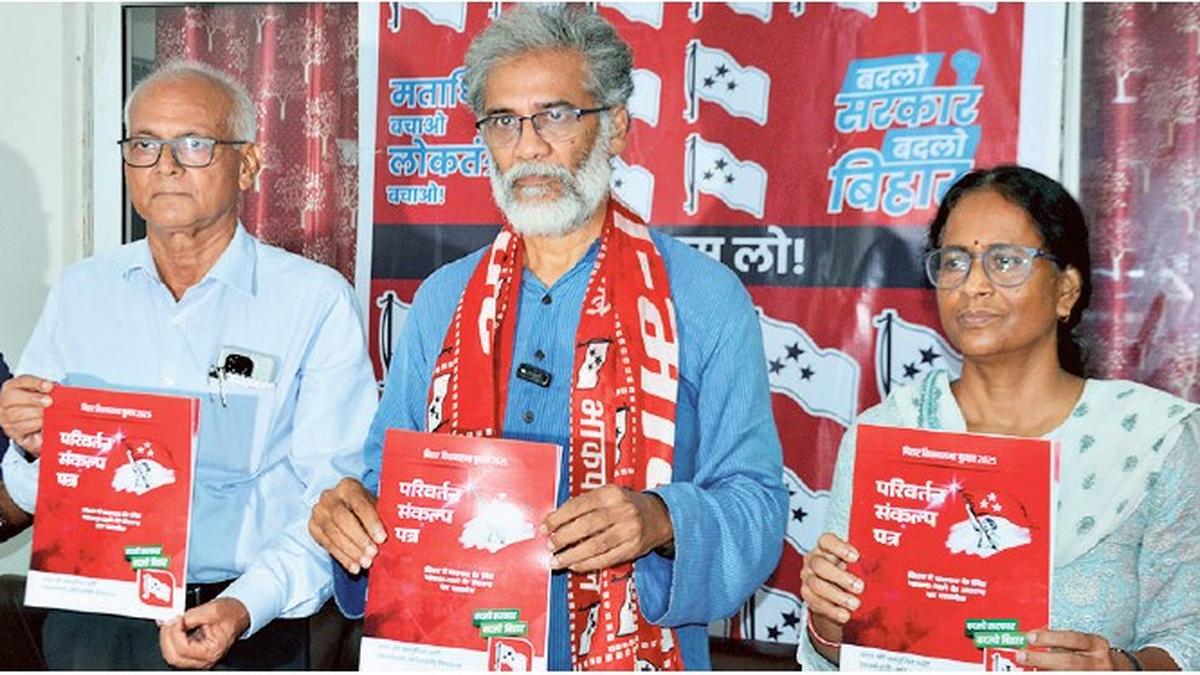ARTICLE AD BOX
Last Updated:November 01, 2025, 09:50 IST
The panel has recommended an urgent amendment to the drug pricing control order to include provisions for regular monitoring of MRPs & trade margins of high-value life-saving drugs

The committee cited cases where the gap between the Price to Stockist (PTS) and Maximum Retail Price (MRP) ran into several multiples, describing them as “whopping differences” that burden consumers.
The parliamentary panel has asked the government to urgently strengthen mechanisms to control medicine prices, warning that several essential and life-saving drugs have become unaffordable despite India being among the world’s lowest-cost producers.
In its 14th report, seen by News18, titled “Price Rise of Medicines in the Pharmaceutical Sector Impacting the Lives of Ordinary Citizens Adversely—A Review", the Standing Committee on Chemicals and Fertilizers has directed the Department of Pharmaceuticals (DoP) and the National Pharmaceutical Pricing Authority (NPPA) to tighten regulation of both scheduled and non-scheduled formulations and address undue profiteering by manufacturers. NPPA is India’s drug pricing regulator under the Department of Pharmaceuticals, Ministry of Chemicals and Fertilizers.
The report is signed by Azad Kirti Jha, Chairperson of the Standing Committee on Chemicals and Fertilizers.
Price Gaps Running Into Thousands
The committee cited cases where the gap between the Price to Stockist (PTS) and Maximum Retail Price (MRP) ran into several multiples, describing them as “whopping differences" that burden consumers. “Against this backdrop, the Committee desire that the Department should review the matter so that medicines to the common man should be made available at justifiable rate," the report said.
The panel has asked the Department of Pharmaceuticals (DOP) to initiate a study on Price to Stockist (PTS) and Maximum Retail Price (MRP) disparities to identify the causes of price escalation and recommend measures to bring retail prices closer to production and distribution costs.
Stronger Control On Non-Scheduled Drugs
While scheduled drugs are covered under the Drugs (Prices Control) Order, 2013, non-scheduled formulations, which include many high-demand medicines, are largely outside the price control net. The committee expressed concern that this regulatory gap enables companies to “abuse the system" by imposing unjustified mark-ups.
“NPPA needs to put more control on prices of non-scheduled formulations to obviate scope for abuse by manufacturers and marketers," the committee said, recommending that appropriate controls be introduced even for non-scheduled medicines, which are more commonly used by the public.
Trade Margin Rationalisation Delay Flagged
The panel also criticised the delay in implementing the long-pending Trade Margin Rationalisation (TMR) framework—a policy meant to cap profit margins across the drug supply chain. The committee noted that the proposal had been under discussion “for a long time with no final decision", while prices of essential medicines “have been rising and become out of reach of the common man".
It recommended that multinational pharmaceutical companies be directed to supply medicines at the same rates as under the Pradhan Mantri Jan Aushadhi Yojana (PMJAY) to ensure equitable access.
Cancer Drugs Under Scrutiny
In one of its strongest observations, the committee urged the government to urgently amend the DPCO, 2013, to introduce a permanent legal mechanism for regulating prices of cancer medicines. It warned that the absence of statutory provisions to audit manufacturing and trade margins limits the ability to check whether the high MRPs of anti-cancer drugs are justified.
“While NPPA is endowed with powers to cap prices, the lack of a permanent mechanism for trade margin control weakens long-term price regulation and transparency," the report noted.
It recommended an urgent amendment to the drug pricing control order (DPCO) to include provisions for regular monitoring of MRPs and trade margins of high-value, life-saving drugs.
Pharma Department Defends Current Regime
In its submission to the committee, the department of pharmaceuticals presented comparative data from IQVIA, a global life sciences consulting firm, showing that India’s medicine prices remain among the lowest globally. The data compared retail prices across India, Sri Lanka, Bangladesh, and Brazil and found that Indian prices were significantly lower in almost every therapeutic category—from antibiotics and insulin to cancer drugs and cardiovascular medicines.
For example, Gemcitabine 1000 mg injection, a cancer drug, costs Rs 2,485 in India compared to Rs 16,198 in Brazil, while Metformin 500 mg tablet, used for diabetes, is Rs 1.69 in India versus Rs 4.23 in Bangladesh. The study concluded that “Indian prices are comparatively low".
However, the standing committee said low average prices cannot justify the sharp internal mark-ups and lack of transparency in the supply chain. It stressed that affordability must reach patients “at the last mile", not just reflect average costs on paper.
“Relying only on exceptional power clauses may not be sufficient to protect public interest in the long term," it said, urging the department to expedite reforms ensuring “fair pricing, prevention of unjustified mark-ups, and affordability of essential treatments".
The committee has sought a detailed response from the department on all recommendations, including a timeline for trade margin rationalisation (TMR) implementation, a new pharmaceutical policy to cover both scheduled and non-scheduled drugs, and action taken on price disparity studies.
Himani Chandna, Senior Associate Editor at CNN News18, specialises in healthcare and pharmaceuticals. With firsthand insights into India's COVID-19 battle, she brings a seasoned perspective. She is particular...Read More
Himani Chandna, Senior Associate Editor at CNN News18, specialises in healthcare and pharmaceuticals. With firsthand insights into India's COVID-19 battle, she brings a seasoned perspective. She is particular...
Read More
First Published:
November 01, 2025, 09:50 IST
News india Expert Panel Pulls Up Pharma Department Over Rising Drug Prices, Seeks Tighter Control On MRP
Disclaimer: Comments reflect users’ views, not News18’s. Please keep discussions respectful and constructive. Abusive, defamatory, or illegal comments will be removed. News18 may disable any comment at its discretion. By posting, you agree to our Terms of Use and Privacy Policy.
Read More

 15 hours ago
5
15 hours ago
5








 English (US) ·
English (US) ·